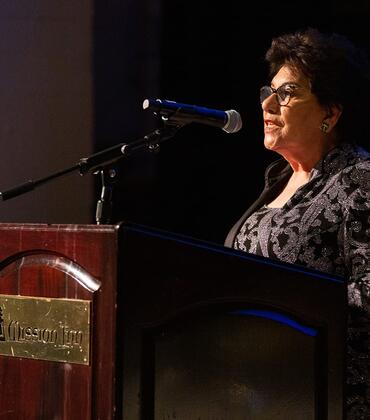
Like other educators during the pandemic, special education staff switched to offering remote support services for their students with disabilities, often with little guidance on appropriate and effective adjustments to their service delivery.
A new study finds that challenges associated with offering some of those services online caused special education staff to report a significantly lower sense of well-being during remote learning than during a typical school year.
“The impromptu deployment of remote learning during the COVID-19 pandemic drastically changed the way schools delivered support to students with disabilities,” said first author Tyler Womack, a doctoral student in education at UC Riverside. “Although schools were still expected to follow federal timelines and mandates for special education services, schools were provided little guidance on how to effectively shift their services remotely. We wanted to know how special education services were adapted across different domains such as assessments, interventions, meetings, and documentation.”
Womack and Elissa Monteiro, also a UC Riverside education doctoral student, administered a web-based survey to 332 special education teachers, school psychologists, and related providers from around the country. Respondents answered questions about the types of special education services they provided remotely, whether they thought those services were effective, and how remote learning affected their own personal well-being.
“Our research questions explored which special education services were provided during remote learning and whether staff perceived the services that were provided to be effective. Additionally, given the increased pressure on school staff to deploy and adapt to remote services very quickly, we were interested in exploring how remote learning affected special education staff well-being,” said Monteiro.
The survey responses revealed that although staff adhered to federally mandated special education timelines some services fared better than others in the transition to remote delivery. Remote meetings made it easier for parents to participate, for example. But providing interventions such as counseling and intellectual or academic assessments was more challenging in a virtual format.
Staff member’s roles and responsibilities also may have shifted during the pandemic. For example, during a ‘typical’ school year research shows that school psychologists spend most of their time administering assessments. However, the researchers found that more than half of respondents reported they spent more time counseling and psychological services remotely during the pandemic, a figure that aligns with previous studies that found school psychologists spent more time providing mental health and consultation services than in doing psychological assessments.
The researchers found that when staff felt they ‘belonged’ in their school and felt supported by their school they were more likely to perceive their services as effective. Additionally, when school staff felt more effective in their role and ability to support students’ outcomes, they were more likely to rate their remote services as effective. For example, most participants responded that they had received no training on how best to use remote platforms to hold special education meetings. Unfortunately, participants rated both their sense of connectedness to their school and efficacy in their role as being much lower during remote learning as compared to a typical school year.
The authors recommend that schools assess staff member’s comfort with technological platforms and provide professional development that meets their individual learning needs to improve efficacy with remote instruction and service delivery in the future.
The paper, “Special education staff well‐being and the effectiveness of remote services during the COVID‐19 pandemic,” is published in Psychology in the Schools and is available here.
Header photo: dolgachov/Getty Images



